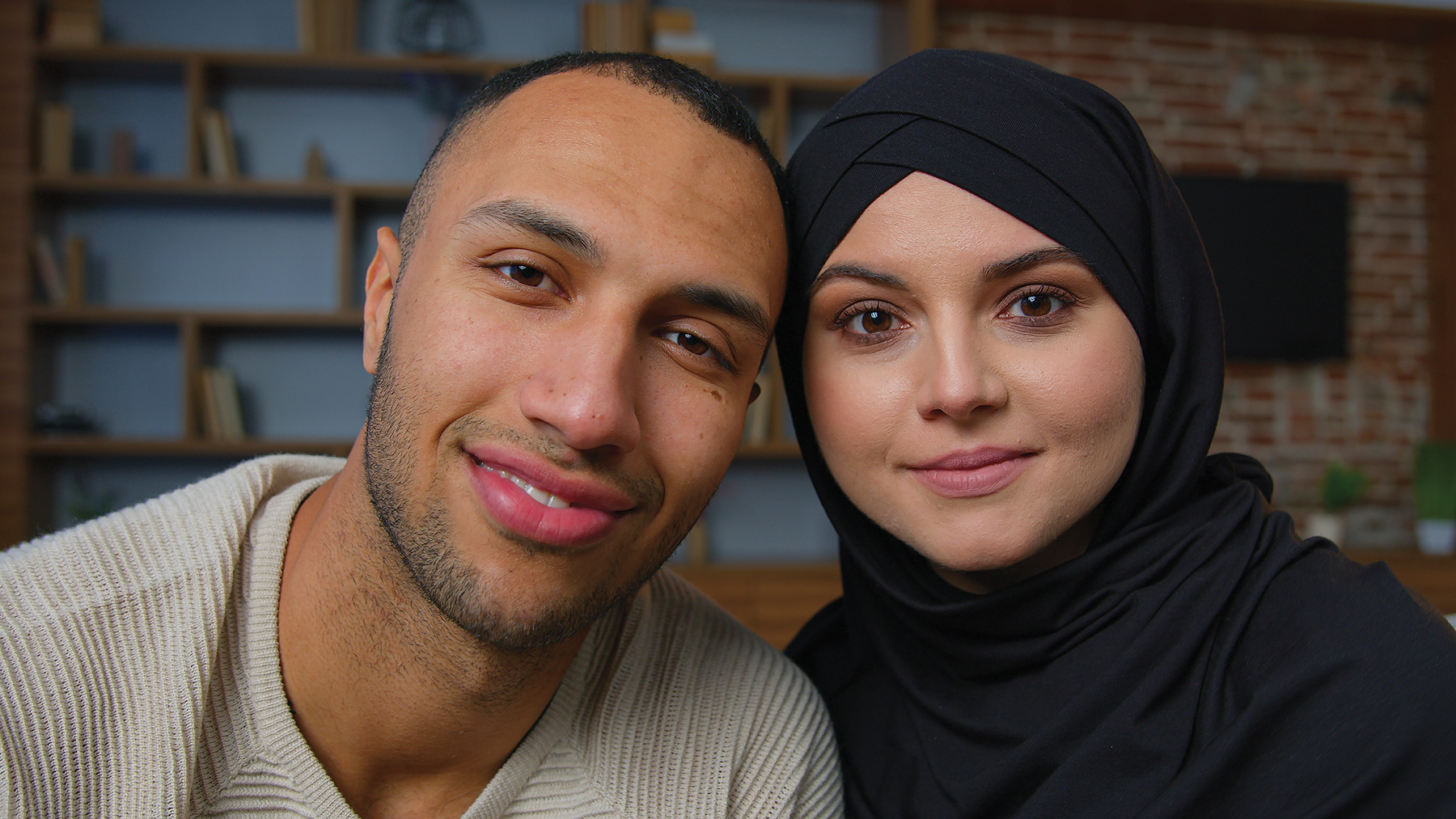Finding Blessing in the Balance: Guidance for Cross-Cultural Parenting
By Carissa Lamkahouan
May/Jun 2024

If you’ve been blessed with children, you well understand the ups and downs of parenting. How you handle one issue or another can change depending on your mood, the particular child you’re engaging with, the problem at hand, what’s going on in your household or any number of other factors that impact your decision-making process.
For those of us in mixed-cultural marriages, the challenges of effective parenting may be compounded by differences in approach, conflicting views on how to deal with problems, and cultural child-rearing norms.
Recently, after jointly disciplining our daughter, my husband and I were discussing how we had handled the problem, specifically our differences in addressing the situation and how we had talked about it with her, including the potential solutions we offered. My husband thought I pressed the problem too long; but I felt we needed to thoroughly explain why we objected to her actions in the first place.
After a bit of back and forth, my husband told me, “Well, we probably balanced each other out.” That comment really struck me and gave me pause. While I was worried that we’d potentially confused our daughter, my husband saw the benefit in our different yet united approach to correcting her.
It got me thinking that maybe our other differences could be contributing to healthy outcomes for all three of our children.
Fostering Effective Communication and Collaboration
Jenn Zerrouali is a revert married to an Algerian man who was raised Muslim. She and her husband are jointly raising her six-year-old daughter from a previous relationship. Zerrouali called her husband an “actively involved” stepfather who lovingly spoils her daughter. She said that differences of opinion occasionally arise, but she relies on presenting her arguments with logic and practicality to reach an agreement.
“I’m a pretty practical parent, so usually there’s a very logical reasoning behind my choices, and once I explain that reasoning, he generally agrees with me,” she related.
However, she admits that she acquiesces to his authority when larger issues surface and that in those moments his healthy relationship with her daughter comes in handy.
“I consider him the big guns if I’m having a really big issue,” Zerrouali said. “Most of the time he spoils her, so since he never gripes at her at all, his discipline can be very effective.”
Nurturing Children’s Multicultural Identity
This point is very important to me. As Americans, we often feel that we don’t have much of a culture, especially when we compare our traditions to those of people from other countries. However, I’m from South Louisiana, where Cajun and Creole culture is king. It’s also very distinct and known the world over. My husband, being Moroccan, also boasts a rich cultural heritage that is thousands of years old.
As parents, we’ve worked hard to make sure our children are familiar with and respect both sides of the family and their respective customs. For example, our house is often filled with the scents and tastes of crawfish and couscous, dishes important to Cajun and Moroccan cuisine, respectively. Additionally, they’ve spent lots of time in South Louisiana as well as in Morocco. I even moved to North Africa for a year when they were young and enrolled them in school.
My husband and I also tell our kids how lucky they are to belong to two unique cultures. We emphasize the importance of celebrating and participating in them, for exposing children to all of their family’s traditions bolsters their confidence and sense of self, as well as allows them to enjoy those parts of their cultures that appeal to them without feeling that they should choose one parent’s traditions over another.
Of course, you should be mindful of how certain traditions do or don’t fit into your beliefs. However, as long as you and your family aren’t participating in something haram, you can feel comfortable helping your children identify with and celebrate where they come from and all the wonderful customs that come with it.
Finding Common Ground
Sometimes meeting in the middle can be complicated by outside forces instead of those presented by your cross-cultural marriage.
Zerrouali said that because her daughter’s biological father isn’t a Muslim and won’t agree to sending her to an Islamic school, she and her husband have worked hard to find a way to raise her that’s acceptable to all three adults. Nevertheless, she acknowledges its challenges.
“My daughter’s father is adamantly against Islamic school, and my husband gets really frustrated by that,” she said. “He just wants us to be able to do what we want to do.”
In instances of conflict, communication is key. Make time to understand what and why your spouse feels the way he/she does and express how you feel as well. If the source of conflict is external, take the same tact when trying to reach a solution that satisfies everyone.
When talking about finding blessing in the balance, it’s prudent to look to the wisdom of Islam, which advocates a life of moderation. Think of your cross-cultural marriage and the differing aspects both partners bring to it as a manifestation of that moderation and enjoy the blessings that flow as a result.
Carissa Lamkahouan is a freelance journalist based in Houston. Her work has appeared in newspapers and magazines locally and internationally including AboutIslam.net, The Houston Chronicle, Inventors Digest, Animal Wellness, and The Muslim Observer among others.
Tell us what you thought by joining our Facebook community. You can also send comments and story pitches to horizons@isna.net. Islamic Horizons does not publish unsolicited material.
